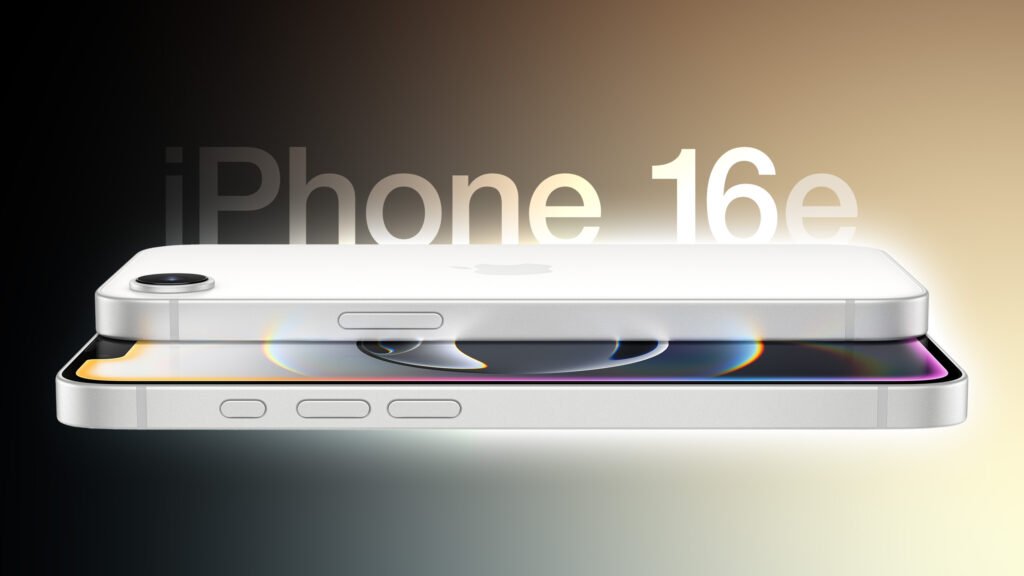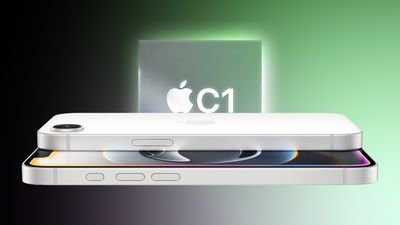Apple has made headlines again with the announcement of the iPhone 16e, featuring its first-ever in-house cellular chip. This major move marks a shift in the smartphone industry, as Apple moves away from relying on third-party suppliers like Qualcomm. The introduction of the new custom chip is expected to revolutionize performance, efficiency, and connectivity for Apple devices.

Why This Matters for the Economy
The launch of Apple’s in-house cellular chip is not just a technological advancement but also a significant economic event. Here’s why:
- Impact on Chip Suppliers: Companies like Qualcomm and Broadcom, which supply components to Apple, may face revenue declines. With Apple reducing its dependency on these external suppliers, their market share in smartphone chip production could shrink considerably. Investors in these companies are already keeping a close watch on how Apple’s move will affect stock values and market trends.
- Boost for Apple’s Profit Margins: By developing its own chip, Apple could reduce production costs and increase profitability. The company has long sought to optimize costs by controlling its supply chain, and this new chip is another step in that direction. Analysts predict this shift will help Apple maintain steady revenue growth despite rising manufacturing expenses in the tech industry.
- Job Creation in Tech Industry: Apple’s investment in chip manufacturing could lead to more jobs in the semiconductor sector. The company may establish new research and development centers focused on refining chip technology. Additionally, Apple’s move could encourage other tech giants to invest in chip-making, further increasing job opportunities in the industry.
- Influence on Global Smartphone Market: Apple’s competitors may be forced to innovate and develop their own in-house solutions. As Apple gains more control over its hardware, companies like Samsung and Google might accelerate their efforts in chip development to stay competitive. This could lead to an overall transformation of the smartphone market, with more brands investing in proprietary hardware solutions to enhance performance and efficiency.

What’s Special About the In-House Cellular Chip?
Apple’s custom cellular chip is expected to bring multiple improvements over third-party chips. Here’s what users and tech enthusiasts can expect:
1. Better Performance
- Faster processing speeds for calls, texts, and data.
- Improved battery efficiency, leading to longer phone usage.
- Optimized compatibility with Apple’s ecosystem, ensuring a seamless experience across all devices.
2. Enhanced Security & Privacy
- Apple will have full control over security protocols, eliminating potential vulnerabilities associated with third-party chips.
- Reduced risk of data breaches and unauthorized access, as Apple integrates stronger encryption and privacy safeguards into its custom chip design.
3. Improved 5G and Network Connectivity
- Smoother and more stable internet connections, ensuring high-speed browsing and seamless streaming.
- Optimized signal reception, even in low-network areas, making the iPhone 16e a more reliable choice for global travelers.

Impact on Apple’s Business Strategy
Apple’s decision to develop an in-house chip aligns with its long-term strategy of reducing dependency on external suppliers. Here’s how it fits into the company’s business model:
- Cost Control: By eliminating reliance on Qualcomm, Apple can control manufacturing expenses and improve its bottom line.
- Better Product Optimization: Owning the chip-making process ensures smoother integration with Apple’s hardware and software, leading to improved user experience and device performance.
- More Competitive Edge: This move could set Apple apart from competitors like Samsung and Google, making its devices even more appealing to consumers looking for superior technology.
How Competitors and the Industry Are Reacting
Apple’s decision to introduce its own cellular chip is shaking up the industry. Here’s how key players are reacting:
- Qualcomm & Broadcom: These companies might see financial losses as Apple cuts down on purchasing their chips. Qualcomm, which has been a dominant force in smartphone chip manufacturing, may need to pivot its strategy to retain customers.
- Samsung & Google: Apple’s competitors might accelerate their efforts to develop similar in-house chips, ensuring they remain competitive in the market.
- Tech Analysts: Many experts believe this move could redefine the future of smartphone chip manufacturing, potentially leading to a wave of custom chip production across major smartphone brands.
Possible Challenges for Apple
Despite its advantages, Apple may face challenges in the transition to in-house cellular chips:
- Potential Technical Issues: New technology often faces early-stage glitches and bugs. Apple will need extensive testing to ensure the chip performs at expected levels.
- Regulatory Scrutiny: Apple might have to address concerns about monopolizing smartphone chip production. Governments and regulators may investigate whether Apple’s move limits fair competition in the tech industry.
- Market Response: Users will need time to adapt and trust Apple’s custom-built solution over existing third-party chips. Some consumers may hesitate to upgrade immediately, waiting for real-world performance feedback.

What This Means for Consumers
Apple customers will likely see improvements in performance and security. However, there might be some uncertainties:
- Pros:
- Better battery life and faster speeds, ensuring longer device usability.
- Enhanced privacy and security, making iPhones even more difficult to hack or breach.
- Stronger and more reliable network signals, particularly for 5G connectivity.
- Cons:
- Initial software or hardware bugs, as Apple fine-tunes the chip’s performance post-launch.
- Higher prices due to research and development costs, potentially making the iPhone 16e more expensive than its predecessors.
Conclusion
Apple’s introduction of the iPhone 16e with an in-house cellular chip is a groundbreaking step in the smartphone industry. While it brings exciting possibilities, it also introduces new challenges for the company and its competitors. As Apple continues to push innovation forward, the tech world eagerly awaits how this move will reshape the global market.
Stay tuned for more updates on the iPhone 16e’s official launch and consumer reactions!
How AI is Revolutionizing Hollywood: The Future of Scriptwriting & Filmmaking






